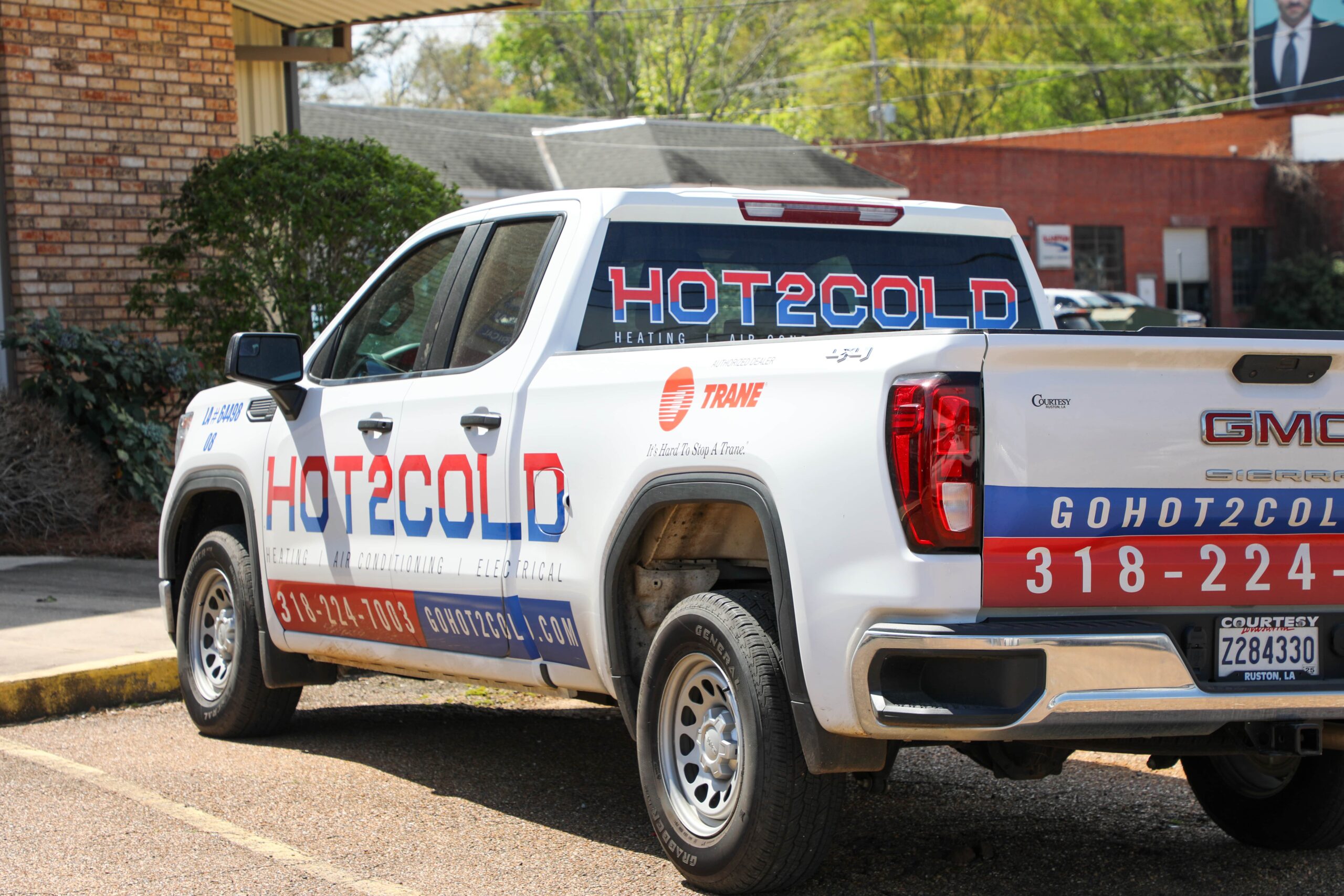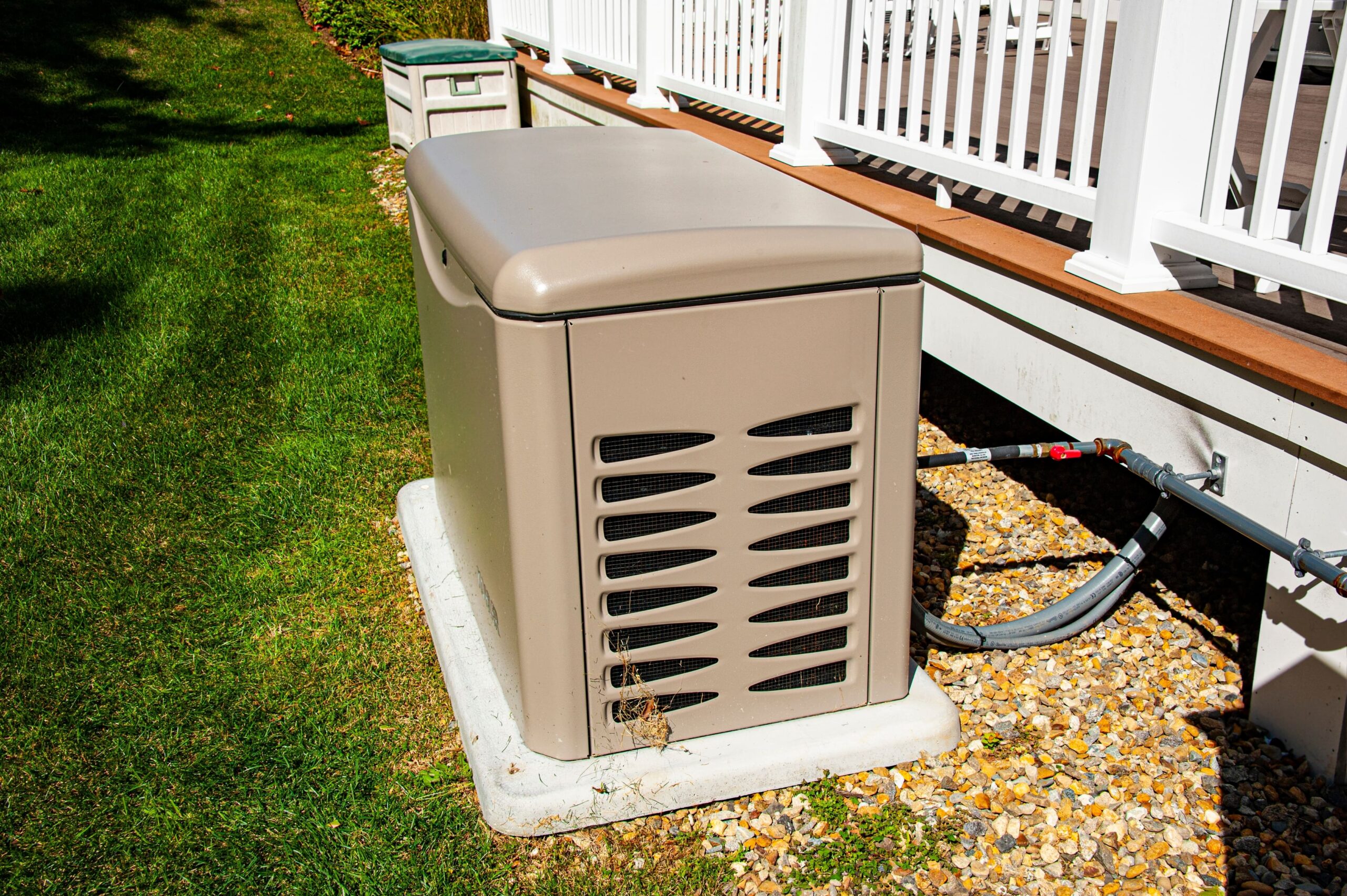
Generator Installation
Generator Installation
Hot2Cold generator installation services are quick, professional and cost-efficient. Our team will site survey for the best location for the generator, prepare the site, connecting fuel and electrical and run simulations to test proper performance.

Benefits of Home Generators
Prevents Shutdown
Keeps Appliances & HVAC Functional
Keeps Lighting On
Quick Power Up
Maintains Home Security Systems
Increased Home Value
GENERATOR
FAQS
What size generator do I need for my business or home?
The size of the generator you need depends on factors such as the size of your home or business, the number of appliances you want to power, and your budget. As certified Generac dealers, we're equipped to assess your requirements and suggest the ideal generator size for your home or business.
Should I purchase or rent a generator?
Deciding whether to purchase or rent a generator depends on several factors, including the size and style of the generator needed, your budget, and the duration of use. As certified Generac dealers, we can help you navigate this decision. Renting a generator has advantages like lower initial costs, availability on short notice, and no maintenance worries. It’s ideal for short-term needs like events or construction projects. However, purchasing a generator can be more cost-effective for long-term use, offering asset ownership, control over power availability, and potential savings on rental fees. Our team can assess your specific needs and help you choose the best option for your home or business.
What are the standard, continuous and prime power ratings and what are the differences?
When selecting the right generator, understanding power ratings is crucial. Standby generators are used for emergency power during outages, providing temporary backup until the main power source is restored. They are ideal for residential, commercial, and industrial applications where power loss can be critical, but they should only run for short periods to avoid breakdowns. Prime power generators serve as the primary power source in remote or off-grid locations, offering variable power loads over extended periods. Continuous power generators, similar to prime but without variable capacity, deliver a steady power load continuously, making them perfect for remote sites where reliable power is essential. Each type has specific applications and benefits, ensuring the generator meets the operational and budgetary needs of the user.
How important is location and what type of prep to the area is needed for installation?
The location and preparation for installing a standby generator are crucial for both safety and functionality. A site survey by our team is essential to assess your property’s specific needs. Factors to consider include property measurements, electrical panel inspection, meter location, main service utility line, and gas lines. Placing the generator close to these utilities reduces installation costs but must adhere to safety and local building codes. It's best to install the generator where prevailing winds can blow exhaust away from your home and keep it away from living spaces, bedrooms, and neighbors. Generators should never be placed inside buildings, under overhangs, or near vegetation. They should be at least 18 inches from anything flammable and 5 feet from windows and doors, following local codes and NFPA guidelines. Proper site preparation ensures safe and efficient generator operation.
Are all generators loud?
While most generators do produce noise, the level of noise can vary significantly depending on the type and size of the generator. Portable inverter generators tend to be quieter but are usually less powerful. Standby generators, which can also be noisy, offer ways to minimize noise. Positioning your generator further from your home and directing exhausts away from living spaces can help reduce noise. Placing the generator on a vibration-absorbing pad or using a noise reduction cage can also significantly dampen the sound. Remember, larger generators typically produce more noise, so choosing the right size for your needs is crucial. Proper installation and placement can protect you, your neighbors, and wildlife from excessive noise.
Is a portable or stationary generator better?
The choice between a portable and stationary generator depends on your specific needs and circumstances. Portable generators are affordable, versatile, and ideal for temporary or lower power needs, such as during short-term power outages, camping, or at construction sites. They run on gasoline, which requires storage and can be noisy, but they offer flexibility and ease of transport. On the other hand, stationary (or standby) generators are better suited for long-term, higher power demands, such as providing continuous power to a home or business during outages. These generators are permanently installed, can start automatically, and are connected to the main electrical system. They are more reliable for critical operations but come with higher initial costs and require professional installation and regular maintenance.
How is the generator power fueled?
Generators can be powered by various types of fuel, including diesel, gasoline, propane (either in liquefied or gaseous form), and natural gas. Smaller engines typically use gasoline, while larger engines often run on diesel, propane, or natural gas. Some generators also offer dual fuel capability, allowing them to operate on both diesel and gas in a bi-fuel mode. The best fuel option for you will depend on factors such as fuel availability, cost, and your specific needs. Our team can assist you in selecting the most suitable fuel option for your generator.
